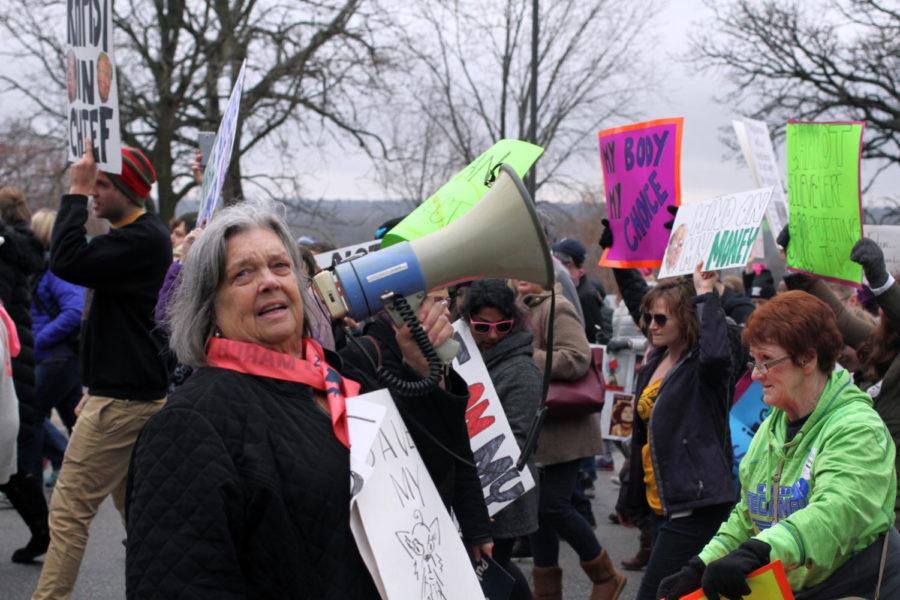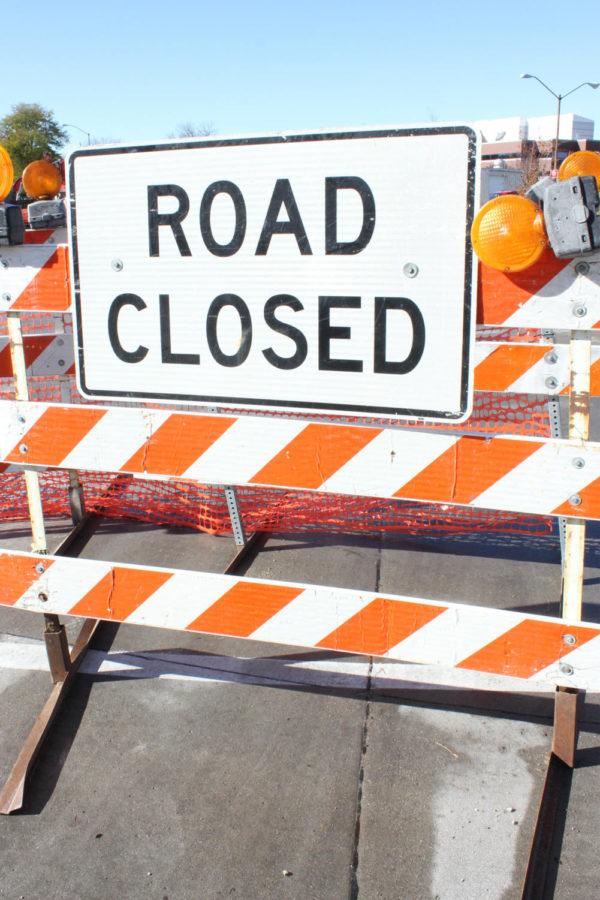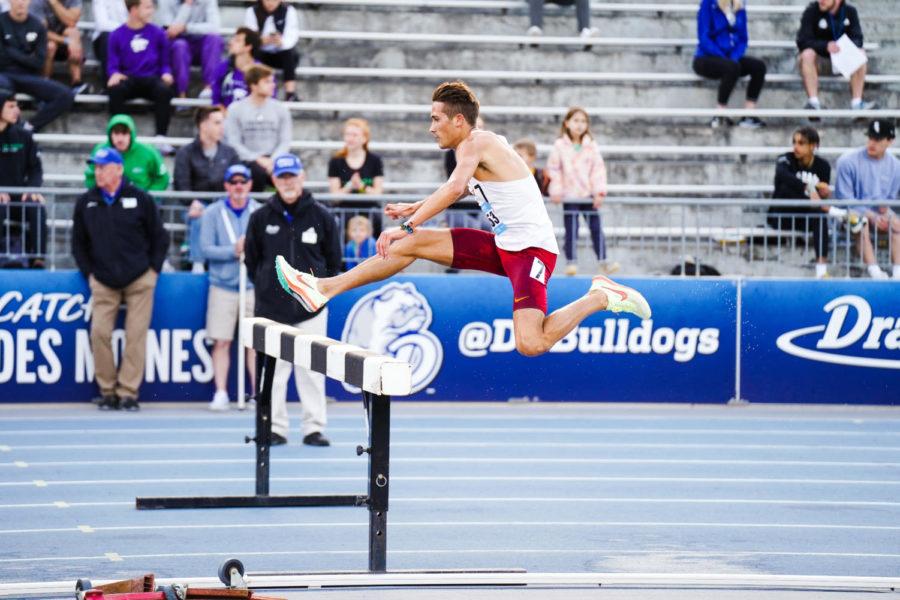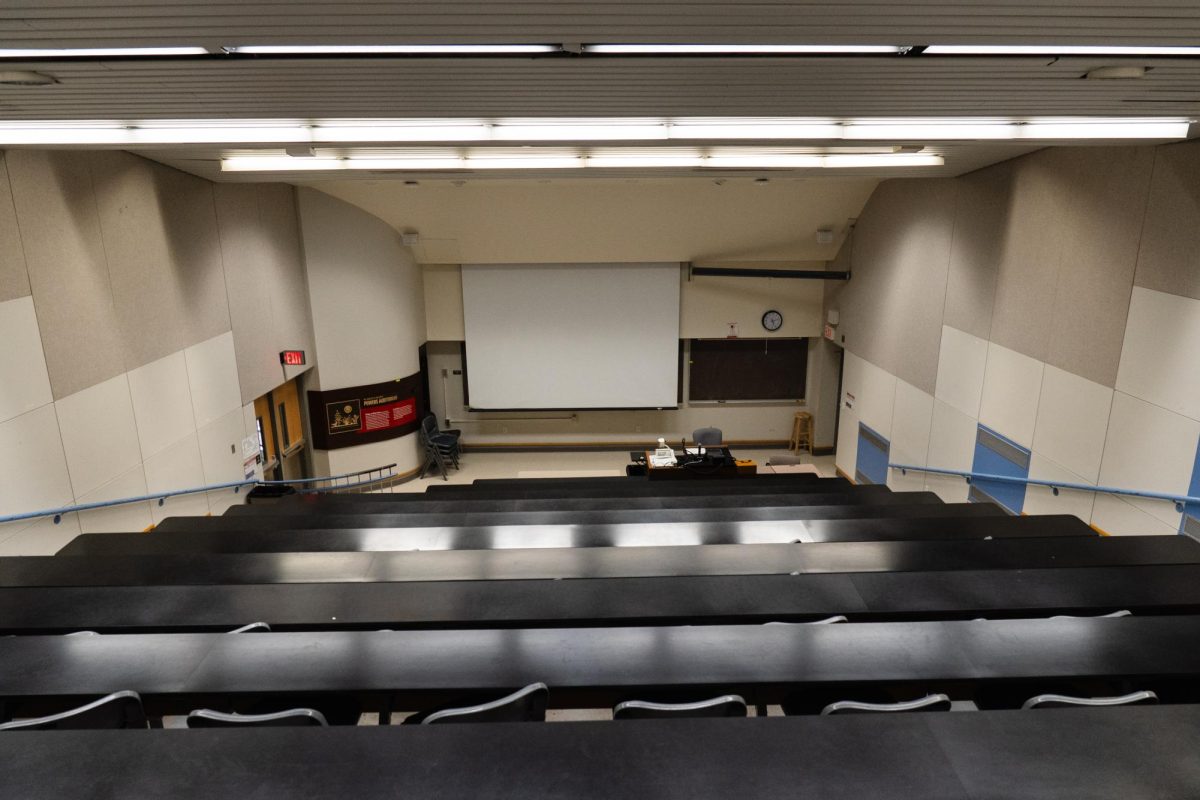Women’s March draws Iowa State students
A woman with a bullhorn leads a chant of “stronger together,” during the Women’s March in Des Moines on Saturday. At the march were signs and speakers highlighting a variety of issues including: LGBTQ+ rights, women’s healthcare and President Trump’s cabinet choices.
January 21, 2017
The day after Donald Trump’s inauguration as president, women’s marches took place across the country and around the globe.
Marches took place in all 50 states and in 70 cities outside of the United States.
The idea for the march originated on Facebook in the days after the results of the U.S. presidential election. The post called for the march to be in the nation’s capital, Washington, D.C. After the post went viral, more and more states began to organize their own marches.
The marches were organized to send a message of unity to women and men across the globe.
The official website of the Women’s March on Washington said, “We stand together in solidarity with our partners and children for the protection of our rights, our safety, our health, and our families — recognizing that our vibrant and diverse communities are the strength of our country.”
Marches are nothing new for activists. In the 1970s and ’80s, marches were used to draw attention to the Equal Rights Amendment. More than 100,000 supporters of the amendment marched through Washington in 1978.
The Million Mom March took place on Mother’s Day in 2000. A total of 750,000 individuals marched on Washington to advocate for stricter gun control measures.
The March for Women’s Lives in 2004 most resembled this year’s march. More than half a million marched in Washington, D.C., to show their support for women’s rights and reproductive health. The march took place to protest the George W. Bush administration’s policies on women’s health.
Over half a million attended Saturday’s march in Washington, D.C. The march in Des Moines saw an estimated 25,000 individuals.
Delaney Kelly, junior in history, attended the national march in Washington, D.C.
When asked why she was marching, Kelly said women’s and human rights.
“Whenever inequalities are present, it’s important to stay loud and be vocal,” she said.
Having always been passionate about women’s and human rights, Kelly said that if she could tell President Donald Trump one thing, it would be to “be kind and considerate of all the diverse people in our country.”
Speakers were included in the national and sister marches. In Des Moines, the speakers included women of all races, cultures and ethnicities.
Rep. Marti Anderson, a Democrat from Des Moines, told the crowd that she has been protesting issues that she’s passionate about since 1968.
“[Protesting] is how we let elected officials know what we want,” Anderson said.
After Anderson spoke, students from Roosevelt High School, North High School and East High School performed slam poetry pieces. All pieces focused on women’s issues and featured lines directed at empowerment and education on feminism.
The National Organization for Women (NOW) was also on board for the Des Moines march. Iowa launched the second chapter of NOW in the 1960s.
Gene Class, speaker for NOW, urged the crowd to volunteer and become activists.
“Never let yourselves be ignored,” Class said.
On the national level, speakers included women’s rights activist Gloria Steinem, pop singer Madonna and Planned Parenthood President Cecile Richards.
Ashley Rolf, open-option sophomore, said she attended the march in Des Moines because of the importance of organizing and “letting voices be heard.”
“The camaraderie I witnessed today crossing every line of race, gender and sexuality made today worth it,” Rolf said.
















